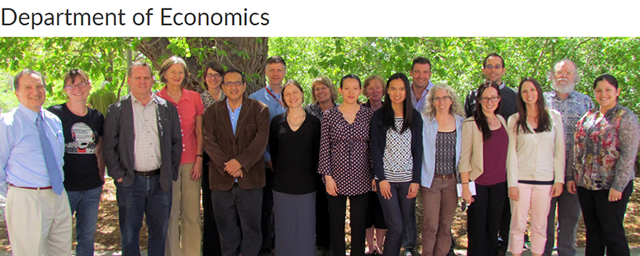
Economics ETDs
Publication Date
Spring 5-6-2019
Abstract
This dissertation is an assessment of market and non-market valuation of renewable energy, specifically within the electricity sector. It contributes to the energy and economics literature through a battery of three chapters. This dissertation utilizes New Mexico as a case study, which is an economically poor and natural-resource rich state that produces and consumes electricity in the southwestern United States. It is also one of the four states that have adopted a policy for 100% clean energy by 2045.
The first chapter models state- and county-level economic (e.g., employment, economic output, etc.) and environmental (e.g., externality, health impact, water use, greenhouse gases, etc.) impacts of the switch from fossil fuel generation to renewables on a state’s economy. This chapter provides a roadmap of how to measure the economic and environmental impacts of different energy scenarios by integrating various methodologies such as econometrics, GIS, and input-output into a unique system dynamics model. Findings from this chapter suggest that renewable energy intensive scenarios are only economically viable when market failure (externalities) is taken into account. Further, counties with varying energy potential and population density will experience variation in impacts.
The following two chapters are based on a discrete choice experiment survey conducted in New Mexico in 2017. The second chapter estimates people’s willingness to pay (WTP) for renewable energy, particularly solar energy. Results suggest that respondents support an increased renewable portfolio standard solar requirement and they have a positive marginal WTP for rooftop solar and smart meter installation. These values are impacted by several factors, including location, environmental worldview, and proximity to solar. We observe a distance decay effect on respondents’ marginal WTP for different solar plans.
As there are often questions concerning the validity of survey responses, the third chapter focuses on the impact of response under two alternative mechanisms: with and without having respondent sign an oath prior to taking a survey. Hypothesis testing results show no evidence that the oath lowers valuation measures in this setting.
There are three major lessons from this dissertation. First, 100% clean energy policies are more desirable when internalizing external costs and hence correct for market failure. Second, consumers are willing to a pay a premium to accompany the move towards higher level of renewable energy diffusion. Third, an oath script may have limited application outside of the experimental lab and is not effective under every condition. This research will provide improved information to enact sustainable energy policies that are effective for the economy, environment, and individual consumers.
Degree Name
Economics
Level of Degree
Doctoral
Department Name
Department of Economics
First Committee Member (Chair)
Janie Chermak
Second Committee Member
Jennifer Thacher
Third Committee Member
Ronald Cummings
Fourth Committee Member
Robert Berrens
Fifth Committee Member
Kate Cartwright
Project Sponsors
NSF Award #1345169, New Mexico’s Established Program to Stimulate Competitive Research (EPSCoR), and the UNM Center for Regional Studies (CRS).
Language
English
Keywords
Renewable Energy, System Dynamics, Willingness-To-Pay, Hypothetical Bias, Renewable Portfolio Standard
Document Type
Dissertation
Recommended Citation
Mamkhezri, Jamal. "Market and Non-Market Valuation of Renewable Energy." (2019). https://digitalrepository.unm.edu/econ_etds/106
